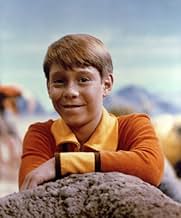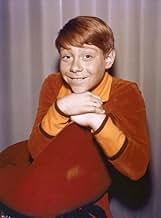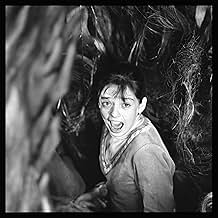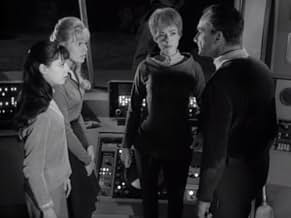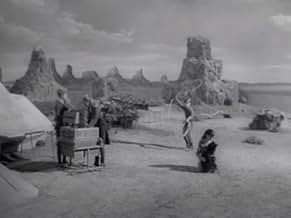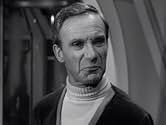A space colony family struggles to survive when a spy/accidental stowaway throws their ship hopelessly off course.A space colony family struggles to survive when a spy/accidental stowaway throws their ship hopelessly off course.A space colony family struggles to survive when a spy/accidental stowaway throws their ship hopelessly off course.
- Nominated for 2 Primetime Emmys
- 1 win & 5 nominations total
Browse episodes
Featured reviews
SPACE FANTASY... STAR TREK certainly utilized elements of whimsy but not to this degree ...I think especially of an example such as the space circus episode,or the wonderful episode in which Dr. Smith turns slowly into a stalk of celery (an acting tour de force, by the way...)...Stunning use of archetypes such as the innocent young lad, the brave companion and the cowardly uncle...many have complained of the cardboard quality of the so called "main characters" of this series, but what an interesting use of them. The so called adult "stars" being only paper backdrops, intentionally made so, so as to throw into relief the richness of these archetypes and the genuinely mythic adventures in which they find themselves.The "special guest star" status of Jonathan Harris is one of the great ironic tricks of network television. A very underrated series.
I think this was the best thing that Irwin Allen ever did. Although the show drifted far away from its original synopsis,the adventures of a family in space, it eventually became the story of a boy and his robot. Bill Mumy became a hot talent in Hollywood after the series and his role as Will as the likeable son is one of TV's most endearing roles. Johnathan Harris was the villain we loved to hate as he became of another of the screen's most versatile character actors. The man showed great talent arguing with an inanimate prop and making it the hero of the show. The unnamed robot, ironically, became more dimensionally than anyone else in the show, and forget Mary Anne vs. Ginger, how many guys had crushes on Penny Robinson than on Judy ? Penny was the adorable ingenue next to the obvious Hollywood presence of Marta Kristen, the first Marilyn Monroe of the galaxy. John and June Robinson, however, slowly became less the leaders and heros of the series as they became closer to Ward and June Cleaver as they spilled out parental advice and punishments. Don West, however, remained mostly the same character without any developments in his character and past, but that can be directly blamed on the series focus between Will, the Robot and Dr. Smith while everyone else became just a little bit more than supporting roles. Despite these few faults, I still think its one of the best things to ever grace television.
One of the most memorable TV series of all time but whose quality was quite uneven in the three seasons that it lasted. The first season was without a doubt the best, it focused on the adventures of the first family of space settlers who departed from Earth to a planet called Alpha Centaury. Dr. Smith, a collaborator of the project and at the same time a spy in the service of an enemy power, enters the ship to sabotage it, but is trapped in it at the last moment, so the ship will drift in space. Riddled with danger. There were excellent stories in the first season, Dr. Smith was a Machiavellian villain who only thought of himself and did not hesitate to betray the Robinsons in order to achieve his goals. The problem arose in the second season, the series competed directly with Batman, which had quickly established itself as an instant success, in order not to lose audience LIS began to copy Batman's camp style and this greatly reduced its content, the series became childish and even silly at times, the stories focused exclusively on Will Robinson, the Robot and Dr. Smith who had already lost his twisted character to become a buffoonish character. For season 3 the production tried to make a change of direction and return to the quality of the scripts of season 1, a new intro was made and a space capsule was added with which they could descend on other planets without the need to land the ship . The quality was an improvement but they were never able to get back on track. Despite all this, the series is a highly recommended classic.
I guess I'm alone in my views these days, but I've never agreed with the critics (or the vast audiences) that adore contemporary TV series like "Seinfeld" or "Friends."
For me, the best decade for TV (by a million miles) was the 1960s. It was truly a unique decade for television. Series produced then are totally unlike anything produced previously or since. I don't know what it was (perhaps someone spiked the water back then), but TV in the 1960s was unique. There was a certain sense of wonder, a certain sense of the fantastic---and a definite 60s vibe of surrealism that crept into every show from "Green Acres" to "Batman" to "Gilligan's Island."
And for my money, the best show in TV's greatest decade was "Lost in Space." It's impossible to describe what watching this show was like in the 1960s. It's an experience that simply can't be re-produced today. For a start, America was still an optimistic nation and we had an ambitious space program that would soon take us to the moon. For everyone who was young in the 60s, it seemed highly plausible that, we too, would get a chance to ride a rocket into space within our lifetimes. Little could we fathom that, after 1972, America wouldn't even land a person on the moon for 35 long years.
Today's TV shows are stiflingly dull and seem to be created by committees that cynically use focus groups to create their sterile product. "Lost in Space" is a million miles away from this creative process. In fact, it's the total opposite (and all the more brilliant for this).
The greatest science fiction always had a sense of wonder and mystery. "Lost in Space" captured the mystery of space---indeed, the show itself was actually quite bizarre. It's a far cry from the over-rated "Star Trek," which, instead of giving us a sense of mystery, followed an (increasingly stale) by-the-numbers formula.
And "formula" is precisely what one did NOT get in viewing "Lost in Space." Indeed, this show is so strange that, viewing it today, it seems like a relic from a lost civilization. It's hard, in fact, to really even fathom who the producers were targeting as their audience.
Naturally, there are cynics who hate this show, and fall over themselves pointing out the plot holes and the ignorance of "realism." To those folks, I say: Chill out. Even TV's "realistic" shows are NOT as realistic as they hyped to be. "Star Trek," for example, has plenty of flaws in its science. Even a highly-praised show like "ER," the medical drama, has plenty of inaccuracies (as any medical professional will tell you).
In many ways, "Lost in Space" does a wonderful job of capturing the essence of what made the 60s the greatest decade of the 20th century for TV, film, music, and culture in general. It's something we'll never re-capture in today's stale culture, dominated as it is by dull, overpaid celebrities. We've gone a long ways downhill from The Beatles to "American Idol."
For me, the best decade for TV (by a million miles) was the 1960s. It was truly a unique decade for television. Series produced then are totally unlike anything produced previously or since. I don't know what it was (perhaps someone spiked the water back then), but TV in the 1960s was unique. There was a certain sense of wonder, a certain sense of the fantastic---and a definite 60s vibe of surrealism that crept into every show from "Green Acres" to "Batman" to "Gilligan's Island."
And for my money, the best show in TV's greatest decade was "Lost in Space." It's impossible to describe what watching this show was like in the 1960s. It's an experience that simply can't be re-produced today. For a start, America was still an optimistic nation and we had an ambitious space program that would soon take us to the moon. For everyone who was young in the 60s, it seemed highly plausible that, we too, would get a chance to ride a rocket into space within our lifetimes. Little could we fathom that, after 1972, America wouldn't even land a person on the moon for 35 long years.
Today's TV shows are stiflingly dull and seem to be created by committees that cynically use focus groups to create their sterile product. "Lost in Space" is a million miles away from this creative process. In fact, it's the total opposite (and all the more brilliant for this).
The greatest science fiction always had a sense of wonder and mystery. "Lost in Space" captured the mystery of space---indeed, the show itself was actually quite bizarre. It's a far cry from the over-rated "Star Trek," which, instead of giving us a sense of mystery, followed an (increasingly stale) by-the-numbers formula.
And "formula" is precisely what one did NOT get in viewing "Lost in Space." Indeed, this show is so strange that, viewing it today, it seems like a relic from a lost civilization. It's hard, in fact, to really even fathom who the producers were targeting as their audience.
Naturally, there are cynics who hate this show, and fall over themselves pointing out the plot holes and the ignorance of "realism." To those folks, I say: Chill out. Even TV's "realistic" shows are NOT as realistic as they hyped to be. "Star Trek," for example, has plenty of flaws in its science. Even a highly-praised show like "ER," the medical drama, has plenty of inaccuracies (as any medical professional will tell you).
In many ways, "Lost in Space" does a wonderful job of capturing the essence of what made the 60s the greatest decade of the 20th century for TV, film, music, and culture in general. It's something we'll never re-capture in today's stale culture, dominated as it is by dull, overpaid celebrities. We've gone a long ways downhill from The Beatles to "American Idol."
The 1960s was a great decade for television, or so to me. 'The Addams Family', 'The Munsters', Doctor Who', 'My Favourite Martian', 'Batman', 'Star Trek', 'Bewitched', 'I Dream of Jeannie', 'Dark Shadows', 'I Love Lucy', 'McHale's Navy', 'Green Acres', 'The Avengers', and they are just a few examples of very good to classic shows from that decade.
'Lost in Space' may be an uneven show, no this is not one of those rarities where there was not a dud episode throughout. Then again some of the aforementioned shows had rocky moments and inconsistency in their runs too, but it deserves to be mentioned in the same breath as the above. When it was good, it was very good and even more than that on many occasions. However, when it was not so good, it was pretty bad to embarrassing. Overall though, it was a very good and influential show that did a lot with a unique concept.
Its best and most consistent season was the first. It had a darker and more sombre tone than the campier nature of the succeeding two seasons, with a real maturity, some suspense and sense of mystery and wonder. Yet it also didn't forget to be fun and full of adventure while treating its stories with intelligence and wit and its audience with respect. The monsters were mostly impressive in design and there were some memorable ones, likewise with the staging of the encounters with them, which were suspenseful and sometimes funny. There was a much better balance of characterisation, and the cast enjoy themselves without going over the top.
However, 'Lost in Space' was at its weakest in the second half of Season 3, where it felt like a different show. While it was understandable for the tone to be lightened to gain more viewers, it did cause a wide divide quality-wise and like the lightning up was taken too far. Not completely unwatchable, with "The Anti-Matter Man" being among the show's better episodes. It was during this period where farce replaced endearingly campy silliness (say what you want about Season 2 being silly, and it was admittedly, but it was still at least entertaining and endearing), repetition and near-incoherence was all over, camp was taken to extremes and the characterisation lacked balance and got over the top in some instances with far too much emphasis on Dr Smith and the robot. Most of the show's worst episodes were in this period too, with "The Great Vegetable Rebellion" gaining infamy as a hilariously terrible episode for good reason.
Visually, 'Lost in Space' looked good on the whole. Preferred it in black and white myself, being a little more atmospheric, but the colour has a 60s charm that holds up well. The sets are very imaginatively used and there are impressive special effects (as well as the odd hokey ones) for the monsters. The music is rousing and haunting with one of the most memorable main themes for a TV show that decade.
Regarding the writing, a lot of it was funny, clever with its fair share of suspense and emotion before getting too silly in Season 3. Some of the catchphrases or memorable quotes are iconic, Dr Smith has the best lines often (especially the repeated ones). The stories were mostly highly engaging and made the most of a unique concept at the time, space has often been portrayed as being wondrous and mysterious and 'Lost in Space' conveys that very well. There are some interesting themes that it covers too, both in its ideas and topics that are of relevance now.
Characters are not easy to forget, especially Dr Smith (regardless of whether he is used too much or a caricature later on, he is a fascinating character and has some of the best lines, he is a character we should hate but there is just something so lovable about him) and the robot and it is hard not to love the dynamic between them, or be endeared by Will. The cast do seem to be enjoying themselves thoroughly and that they know which tone they're going for.
Jonathan Harris' Dr Smith is an unforgettable creation and a genre character landmark, anybody asked about what role they associate Harris with would most likely choose his role here. Very like they would with the roles of Adam West in 'Batman', Ray Walston in 'My Favourite Martian', Jonathan Frid in 'Dark Shadows' and Elizabeth Montgomery in 'Bewitched'. Equalling him, let alone topping him, is impossible, and even if achieved is a monumental task as proved (and nowhere near as successfully) in the film version three decades later. Guy Williams, Bill Mumy and June Lockhart are all very good as well and the robot and its dynamic with Dr Smith is one of the show's greatest pleasures.
Overall, an uneven show but a very entertaining one and a very good one at its best. 8/10 Bethany Cox
'Lost in Space' may be an uneven show, no this is not one of those rarities where there was not a dud episode throughout. Then again some of the aforementioned shows had rocky moments and inconsistency in their runs too, but it deserves to be mentioned in the same breath as the above. When it was good, it was very good and even more than that on many occasions. However, when it was not so good, it was pretty bad to embarrassing. Overall though, it was a very good and influential show that did a lot with a unique concept.
Its best and most consistent season was the first. It had a darker and more sombre tone than the campier nature of the succeeding two seasons, with a real maturity, some suspense and sense of mystery and wonder. Yet it also didn't forget to be fun and full of adventure while treating its stories with intelligence and wit and its audience with respect. The monsters were mostly impressive in design and there were some memorable ones, likewise with the staging of the encounters with them, which were suspenseful and sometimes funny. There was a much better balance of characterisation, and the cast enjoy themselves without going over the top.
However, 'Lost in Space' was at its weakest in the second half of Season 3, where it felt like a different show. While it was understandable for the tone to be lightened to gain more viewers, it did cause a wide divide quality-wise and like the lightning up was taken too far. Not completely unwatchable, with "The Anti-Matter Man" being among the show's better episodes. It was during this period where farce replaced endearingly campy silliness (say what you want about Season 2 being silly, and it was admittedly, but it was still at least entertaining and endearing), repetition and near-incoherence was all over, camp was taken to extremes and the characterisation lacked balance and got over the top in some instances with far too much emphasis on Dr Smith and the robot. Most of the show's worst episodes were in this period too, with "The Great Vegetable Rebellion" gaining infamy as a hilariously terrible episode for good reason.
Visually, 'Lost in Space' looked good on the whole. Preferred it in black and white myself, being a little more atmospheric, but the colour has a 60s charm that holds up well. The sets are very imaginatively used and there are impressive special effects (as well as the odd hokey ones) for the monsters. The music is rousing and haunting with one of the most memorable main themes for a TV show that decade.
Regarding the writing, a lot of it was funny, clever with its fair share of suspense and emotion before getting too silly in Season 3. Some of the catchphrases or memorable quotes are iconic, Dr Smith has the best lines often (especially the repeated ones). The stories were mostly highly engaging and made the most of a unique concept at the time, space has often been portrayed as being wondrous and mysterious and 'Lost in Space' conveys that very well. There are some interesting themes that it covers too, both in its ideas and topics that are of relevance now.
Characters are not easy to forget, especially Dr Smith (regardless of whether he is used too much or a caricature later on, he is a fascinating character and has some of the best lines, he is a character we should hate but there is just something so lovable about him) and the robot and it is hard not to love the dynamic between them, or be endeared by Will. The cast do seem to be enjoying themselves thoroughly and that they know which tone they're going for.
Jonathan Harris' Dr Smith is an unforgettable creation and a genre character landmark, anybody asked about what role they associate Harris with would most likely choose his role here. Very like they would with the roles of Adam West in 'Batman', Ray Walston in 'My Favourite Martian', Jonathan Frid in 'Dark Shadows' and Elizabeth Montgomery in 'Bewitched'. Equalling him, let alone topping him, is impossible, and even if achieved is a monumental task as proved (and nowhere near as successfully) in the film version three decades later. Guy Williams, Bill Mumy and June Lockhart are all very good as well and the robot and its dynamic with Dr Smith is one of the show's greatest pleasures.
Overall, an uneven show but a very entertaining one and a very good one at its best. 8/10 Bethany Cox
Did you know
- TriviaJune Lockhart had the biggest parking space on the 20th Century-Fox lot because she would often drive her favorite vehicle to work - a 1923 fire engine.
- GoofsThe Robot is mounted on tracks. Yet in close-ups when it moves with a normal walking action and it is possible to see the actors legs move in the lower parts of the suit.
- Alternate versionsA pilot episode was filmed that did not include either Robot or Dr. Smith! This film was not broadcast in 1965 but was shown on TV and released to video in the 1990s.
- ConnectionsEdited into The Man from the 25th Century (1968)
Details
- Release date
- Country of origin
- Language
- Also known as
- Lost in Space
- Filming locations
- Production companies
- See more company credits at IMDbPro
- Runtime1 hour
- Color
Contribute to this page
Suggest an edit or add missing content





